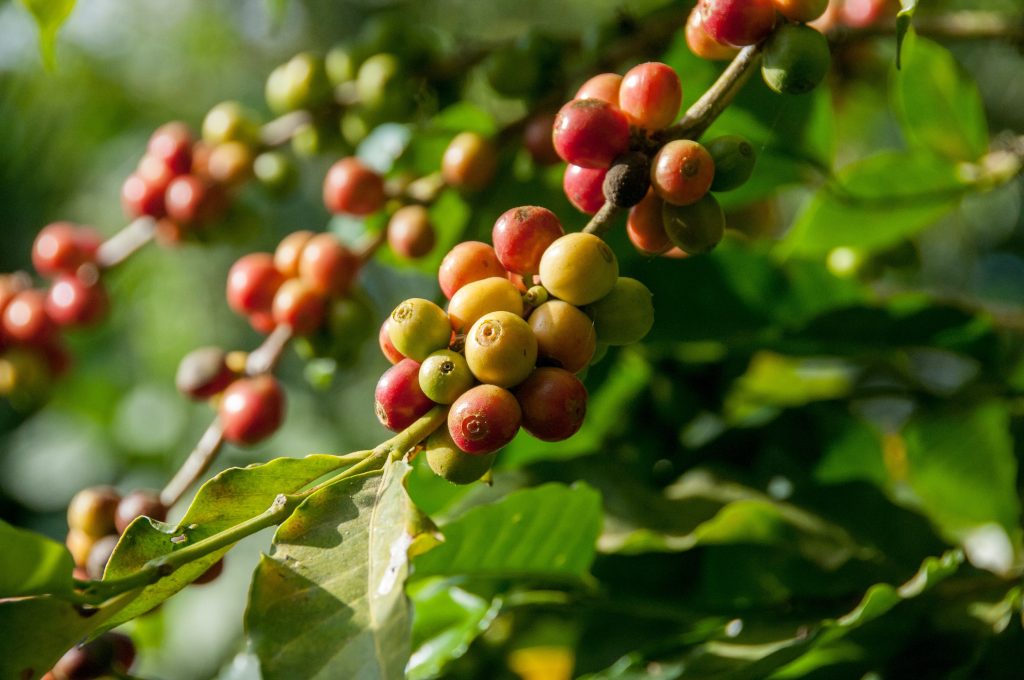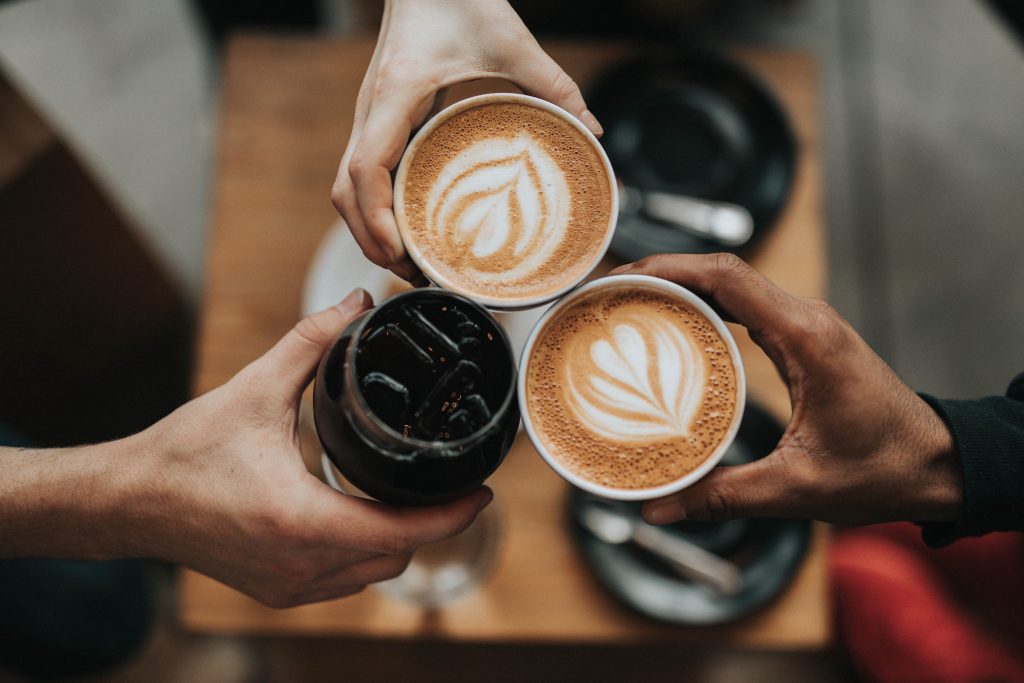What do people actually know about coffee? We’d like to share our knowledge about the most interesting coffee facts in the world.
There are people who can’t start their day without having a freshly brewed cup of coffee. They love coffee so much that sometimes they call themselves “coffee addicts”. And we understand that all too well. However, drinking your daily cup(s) of coffee isn’t necessarily a bad habit. On the contrary, it’s proven to be healthy, scientists say. Your daily morning coffee provides you with more than just an energy boost. It’s also shown to protect us against Type 2 diabetes and liver diseases as well as lowering the risks of heart failure. Besides the effect on our health, here are some of the more interesting facts about coffee.
Coffee is culture
Going back in time, we’ve seen that coffee is not just a drink. It’s a means of social interaction, and has been for a long time. In the past, people gathered together to share a cup of coffee and exchange information. In North America and a lot of Western European countries, Starbucks and other major chains have dominated the market because they are providing the customers a complete experience around coffee. Coffee and friends, coffee and work, coffee and snacks, coffee to go! There’s the Irish mix with whiskey called “Irish Coffee”. In Italy the invention of espresso and the espresso machine made it the favorite whole-day beverage of Italians. In Greece, there is the “kafenio”, an old fashioned coffee shop for old gentlemen, where they drink Greek coffee and exchange political ideas or they play cards and a board game called “tavli”. And in some countries, like Colombia or Brazil, the whole economy is based on coffee.
That makes us really curious to know more interesting facts about coffee as a commodity, as a beverage and as a part of everyday culture.
16 interesting facts about coffee
1. Second in the world
Coffee is consumed in such great quantities, it is the world’s 2nd largest traded commodity, surpassed only by crude oil. It is our most beloved beverage after water. It’s worth well over $100 billion worldwide.

2. Hawaii is the only American state that grows coffee
Good coffee growing conditions are dependent on variables such as high altitudes, tropical climates and rich soil. Therefore, despite all the rich and diverse landscapes of the Continental United States, Hawaii is the only state suitable for growing coffee plants. It has been producing coffee even before it was a state. (Recently, though, farms in California did start growing coffee bushes!)
3. Coffee was discovered by a goat herder
It was said that coffee was discovered by a goat herder in Ethiopia in the 1500s. He saw his goats eating coffee cherries. Afterwards, he observed a change in their behavior; they gained a high amount of energy and they didn’t sleep at night. The herder shared his findings with local monks. After they made their own drink from coffee beans, they realized they could stay up all night and pray. Word spread to other Ethiopian monks and soon after reached all across the civilized world.
4. Coffee helped Olympic athletes
Brazil couldn’t afford to send its athletes to Los Angeles for the 1932 Olympics, so the government sent them in a ship full of coffee which was sold on the way to finance their trip.
5. Mecca banned coffee
Coffee was banned in Mecca in 1511, quite soon after its first appearance in Ethiopia. It was believed to stimulate radical thinking and idleness.
6. Add cream, keep your coffee warm
Coffee stays warm 20% longer when you add cream. You’ll have to ask a physicist about that one. We reckon it might have something to do with the principle that makes hot water more suitable for making ice cubes than cold water when you’re in a hurry to cool down your fresh beverage.

7. 'Divorce on account of terrible coffee'
In ancient Arab culture, apparently still applicable in Saudi Arabia, woman can allegedly find legal ‘grounds’ (get it?) for divorce if her husband fails to bring her fresh coffee in the morning.
8. Italian “expresso”
The word espresso comes from Italian and means “expressed” or “forced out”. Espresso is made by forcing very hot water under high pressure through finely ground, compacted coffee.

9. Coffee is a fruit
Coffee beans grow on a bush. They are actually the pit of a berry, which makes them a fruit. There are two main varieties of beans: green and red. Red beans have a nicer smell and are less acidic. They are used to produce lighter coffees. The longer that coffee beans have been roasted, the healthier they are. Decaffeinated coffee comes from a chemical process where the caffeine is taken out of the beans. The caffeine is then often sold to Coca-Cola, a major buyer.

10. Beethoven loved coffee
Beethoven was such an ardent coffee lover that he’d count 60 beans per cup before making his brew.
11. The most expensive coffee is made from cat poop
“Kopi Luwak” is the most expensive coffee in the world. It comes from Indonesia and is made from beans digested from the Asian Palm Civet. In other words, it comes from cat poop. It sells for €350 and up per kilo!

12. A year drinking coffee or an iPhone?
Americans on average spend $1,092 a year on coffee. That’s around $20 a week. That is also close to the price of the newest iPhone. Young people generally spend more on coffee than older people.
13. Fairtrade coffee improves quality
Fairtrade coffee costs more, but it goes a long way in improving conditions for farmers, and they spend at least 25% of that Fairtrade Premium to enhance productivity and quality. Over the last years, Fairtrade-certified coffee products have won lots of Great Taste Awards.
14. There are two types of coffee
Arabica coffee was originally cultivated on the Arabian Peninsula, hence the name. Robusta coffee is a more hardy plant but contains double the amount of caffeine.

15. Europe loves coffee
According to International Coffee Association, Europe imports more coffee than the USA. Also, Brazil is the lead exporting country in coffee.
16. The big spenders
The “Big Four” coffee roasting companies – Kraft, P&G, Sara Lee and Nestle – buy about 50% of the coffee produced worldwide.
Old Facts, New Facts
So many interesting facts about coffee and its rich history. A love of all things connected with coffee has brought both large and small companies into the world of coffee production and trading, making it a very modern product as well. Technology and improvements in coffee trading industry are two of the major factors which help a lot of those companies to compete in the volatile environment of coffee trading.
Coffee culture is constantly changing as coffee drinkers seek new ways to enjoy their favorite beverage. Production, trading and distribution methods have evolved to meet these new needs, but there are a lot more improvements yet to be made. So further coffee research and development will need to be an on-going activity.
As a coffee trader you need to make the right choices in setting up your business for continuing growth and profit. Organizing all aspects of your daily routine is definitely going to assist you in the future. And even if you didn’t have the sufficient budget when you started and now want to adopt your existing business to use specific software in order to handle all your coffee trading activities, you still can. It is never too late.
Agiblocks is a Commodity Trading and Risk Management software, designed specifically for managing coffee commodity trading transactions. It is designed to be your friend for your business and helps you make a mark by adding your own “interesting facts” to our great coffee industry! Find out what Agiblocks can do for your business by reading our latest whitepaper here.

